Search Results
Showing results 1 to 16 of 16

Supercooled Water Drops
Source Institutions
In this activity, learners touch supercooled water drops with an ice crystal and trigger the water drops to freeze instantly.
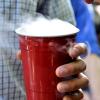
Light Soda
Source Institutions
In this activity, learners sublimate dry ice and then taste the carbon dioxide gas.
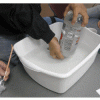
Inflate-a-mole
Source Institutions
In this activity, learners conduct an experiment to find the volume of one mole of gas. Learners capture sublimated gas from dry ice in a ziploc bag and use water displacement to measure its volume.
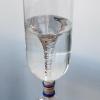
Vortex
Source Institutions
In this activity, learners create a tornado in a bottle to observe a spiraling, funnel-shaped vortex. A simple connector device allows water to drain from a 2-liter bottle into a second bottle.
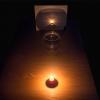
Water Sphere Lens
Source Institutions
In this activity about light and refraction, learners make a lens and magnifying glass by filling a bowl with water.
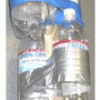
Portable Potable Pressure
Source Institutions
In this activity, learners use plastic water bottles, wood, and water to build an inexpensive and portable tool to demonstrate one atmosphere of pressure at sea level.
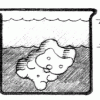
Gummy Growth
Source Institutions
In this activity related to Archimedes' Principle, learners use water displacement to compare the volume of an expanded gummy bear with a gummy bear in its original condition.

How Big is Small
Source Institutions
In this classic hands-on activity, learners estimate the length of a molecule by floating a fatty acid (oleic acid) on water.
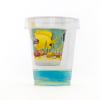
Ocean Acidification in a Cup
Source Institutions
Ocean acidification is a problem that humans will have to deal with as we release more and more carbon dioxide into the atmosphere.
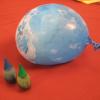
Ice Balloons
Source Institutions
In this activity, learners will explore globes of frozen water to learn how to ask and then answer 'investigable' questions. The activity web page includes a short video demonstration.

Chocolate (Sea Floor) Lava
Source Institutions
In this edible experiment, learners pour "Magic Shell" chocolate into a glass of cold water. They'll observe as pillow shaped structures form, which resemble lavas on the sea floor.
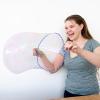
Bubble Tray
Source Institutions
In this activity, learners use simple materials to create giant bubbles.

Hollandaise Sauce: Emulsion at Work
Source Institutions
In this activity, learners follow a recipe to make hollandaise sauce. Learners discover how cooks use egg yolks to blend oil and water together into a smooth mix.
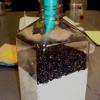
Earth Atmosphere Composition
Source Institutions
In this activity, learners use rice grains to model the composition of the atmosphere of the Earth today and in 1880. Learners assemble the model while measuring percentages.
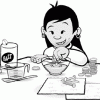
Copper Caper
Source Institutions
In this activity, learners conduct an oxidation experiment that turns old pennies bright and shiny. Learners soak 20 dull, dirty pennies in a bowl of salt and vinegar for five minutes.
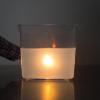
Blue Sky
Source Institutions
In this optics activity, learners explore why the sky is blue and the sunset is red, using a simple setup comprising a transparent plastic box, water, and powdered milk.
